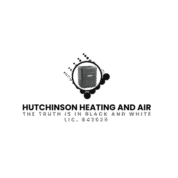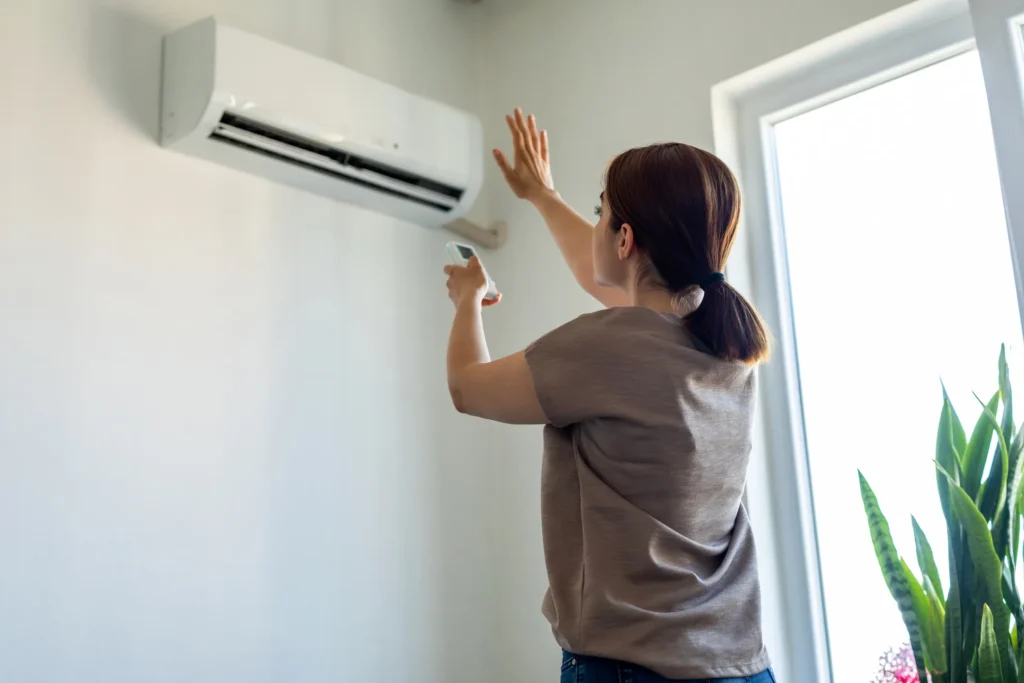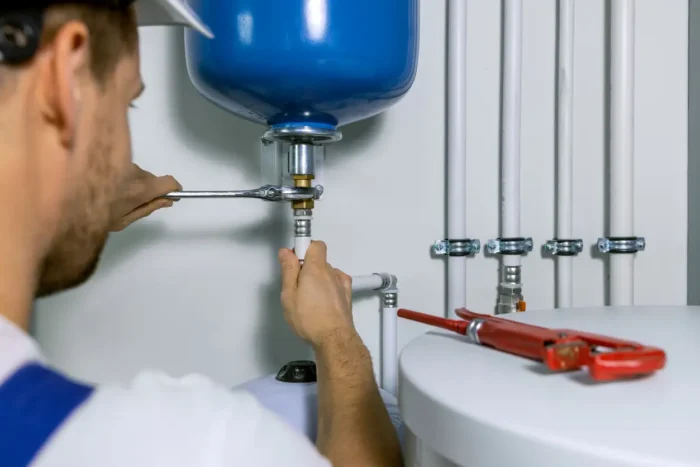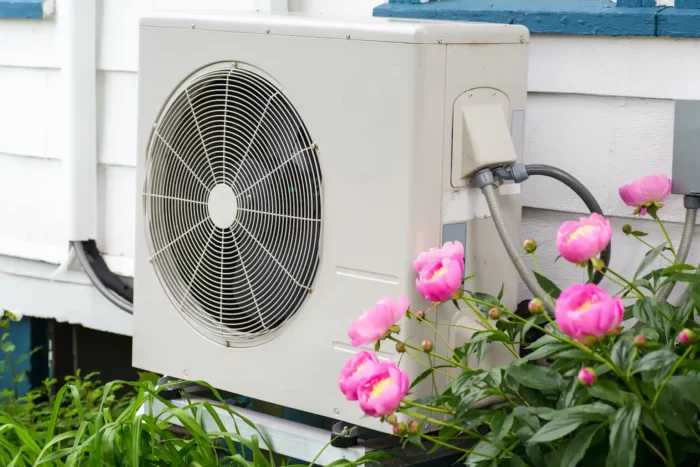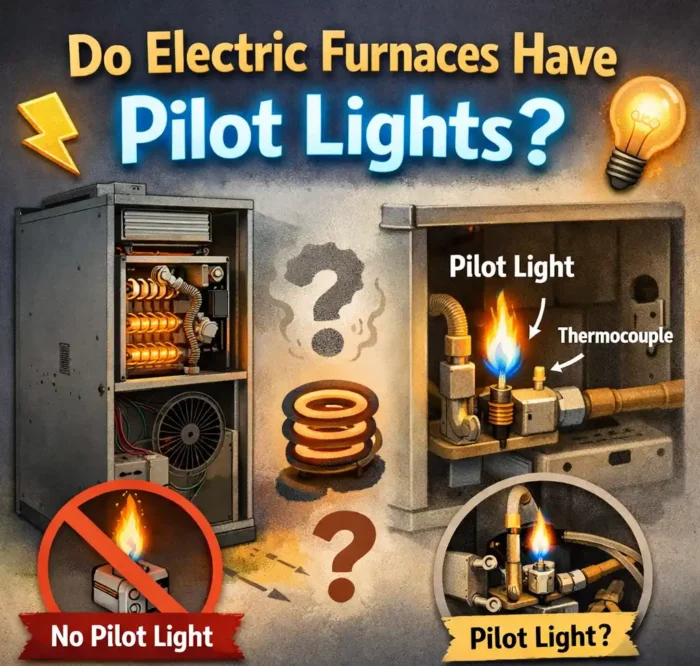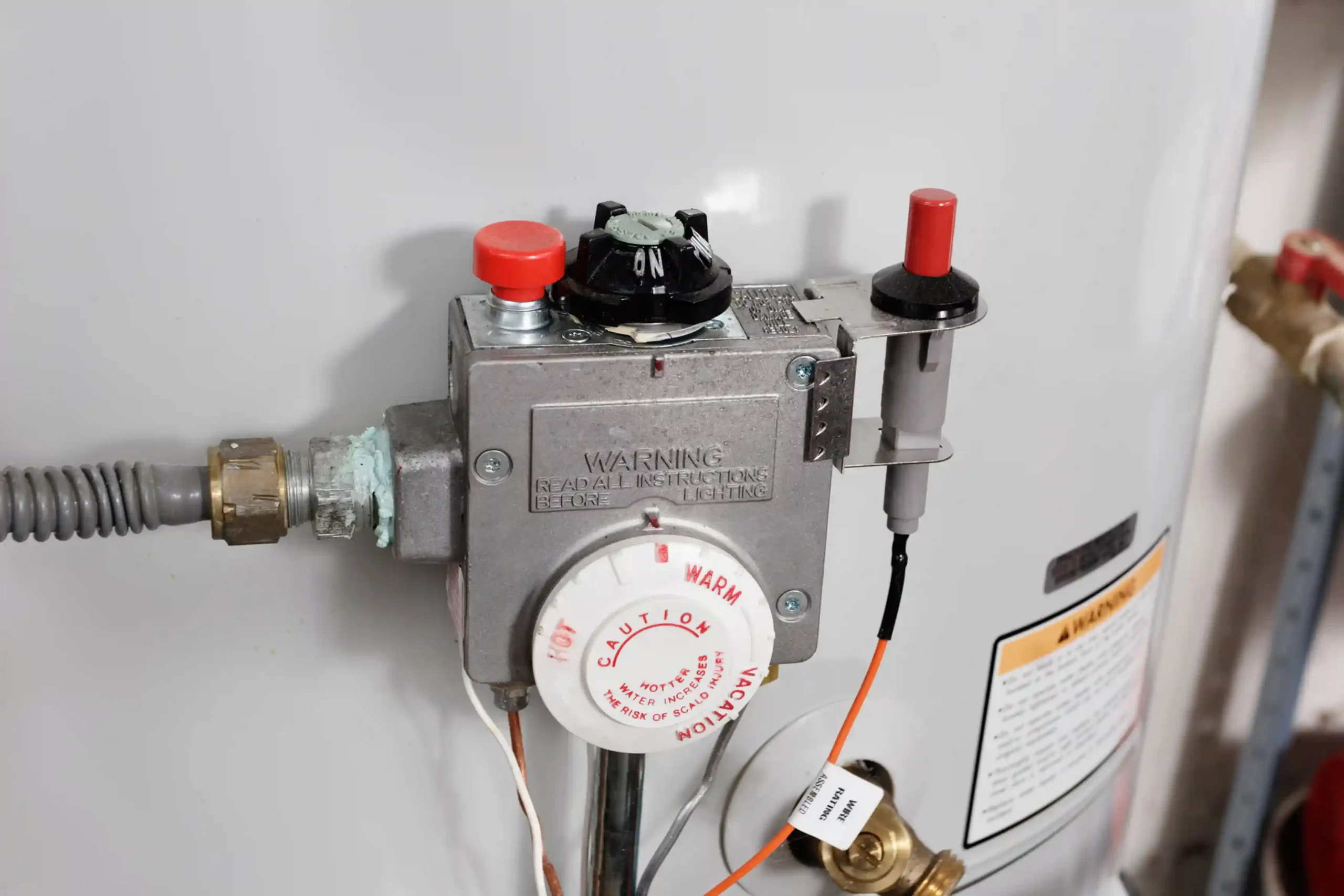Why is my AC not working? It’s a question no one wants to ask especially during a heatwave. Few things are more frustrating than an air conditioning unit not working when you need it most. Whether it’s blowing warm air, not turning on, or making strange noises, an AC not functioning properly can quickly disrupt your comfort and routine. Identifying the root cause early can save you time, money, and stress. In this guide, we’ll break down the most common problems, share practical troubleshooting tips, and help you understand when it’s time to call in a professional.
Table of Contents
ToggleWhy Is My Air Conditioner Not Cooling the House?

Is your AC not functioning like it used to? If your air conditioner stopped working or isn’t cooling your home properly, there could be several reasons behind it. Before calling a technician, there are a few things you can check yourself. Here are some common causes and what they might mean for your system.
Dirty or Clogged Air Filters
One of the most common reasons for poor cooling is dirty or clogged air filters. When the filters are blocked, airflow is restricted, causing your system to work harder and cool less effectively. Check your filters and replace them if they appear dirty or haven’t been changed in a while.
Thermostat Settings
It might sound simple, but incorrect thermostat settings can lead to your air conditioner not functioning correctly. Make sure your thermostat is set to “cool” and the temperature is set lower than the current room temperature. Also, ensure it hasn’t accidentally been switched to fan-only mode.
Refrigerant Leaks
If your AC system has refrigerant leaks, it won’t be able to cool your home properly. Low refrigerant levels can reduce efficiency and may even damage your system. This issue typically requires a professional AC repair to diagnose and fix the leak to restore your system’s performance.
Frozen Evaporator Coils
Frozen evaporator coils can also prevent your AC from cooling effectively. This usually happens when there’s insufficient airflow due to a dirty filter, blocked vents, or low refrigerant. If you notice ice buildup on the indoor unit, turn off the system and let it thaw before restarting.
DIY Checks Before Calling a Technician
Before calling for service, here are a few things you can try:
- Check and replace dirty air filters.
- Make sure vents and registers are open and unblocked.
- Reset the thermostat or AC unit.
- Ensure there’s power to the unit (check breakers or fuses).
These simple steps might get your air conditioner functioning again without the need for professional help.
When Poor Cooling Is a Serious Issue
If your AC is still not cooling after basic checks, it could be a sign of a more serious problem such as compressor failure, a faulty capacitor, or electrical issues. In this case, it’s best to call a qualified HVAC technician to inspect your system.
You may read How Long Do AC Units Last?
Why Doesn’t My Air Conditioner Fan Work?
If your AC is not functioning properly and you’ve noticed that the air conditioner fan isn’t working, it’s important to understand what might be causing the issue. There are two key fans in most air conditioning systems, and problems with either can lead to poor cooling or system failure.
Blower Fan vs. Condenser Fan
Understanding the difference between these two fans can help pinpoint the problem:
- Blower Fan (Indoor Unit): Circulates cool air throughout your home. If this fan isn’t working, you may feel no airflow from your vents.
- Condenser Fan (Outdoor Unit): Releases heat absorbed from your home to the outside. If this fan fails, the system may overheat or stop cooling efficiently.
Common Reasons the AC Fan Isn’t Working
Here are a few common causes to consider if your air conditioner stopped working or the fan isn’t spinning:
1. Tripped Breakers
A tripped circuit breaker is one of the simplest causes. If the breaker connected to your AC has tripped, the fan won’t run. Check your electrical panel and reset the breaker if needed. If it trips again, there may be a deeper electrical issue.
2. Faulty Fan Motor
A faulty fan motor can prevent the fan from spinning entirely. Over time, motors can burn out due to wear and tear, overheating, or lack of maintenance. If the fan hums but doesn’t move, or turns slowly, the motor may be the problem.
3. Capacitor Issues
The capacitor helps the fan motor start and keep running. If it fails, the fan may not spin at all. Signs of capacitor issues include a humming noise without fan movement or intermittent operation.
4. Thermostat or Control Board Malfunctions
A faulty thermostat or control board can send the wrong signals to the system, causing the fan not to activate when it should. Try setting the thermostat to a cooler temperature or switching it to “fan-only” mode to test responsiveness.
How to Tell If the Fan Motor Is Burned Out
Here are some signs that your fan motor may be burned out:
- Fan blades do not spin, even when the system is running.
- A burning smell coming from the unit.
- The fan motor is hot to the touch.
- You hear a humming noise, but the fan doesn’t move.
- Manual spinning of the fan blades doesn’t start the fan.
If these symptoms are present, it’s likely time to replace the motor—something best handled by a qualified HVAC technician.
My Air Conditioner Isn’t Turning Off

If your AC does not work as expected and keeps running constantly—even when the temperature is already cool this could signal a deeper problem. While your air conditioner should cycle on and off to maintain the desired temperature, continuous operation can waste energy, strain the system, and indicate something is wrong.
Here are some of the most common reasons why your air conditioner isn’t turning off, along with what to look out for.
Faulty Thermostat
A faulty thermostat may fail to signal your system to stop once the set temperature is reached. It might be:
- Misreading the room temperature
- Stuck in the “on” position
- Malfunctioning due to wiring or age
Try replacing the batteries or resetting the thermostat. If that doesn’t help, the thermostat might need to be repaired or replaced.
Stuck Contactor Relay
Inside your outdoor unit is a part called the contactor relay, which helps control the flow of electricity to the compressor and fan. If it gets stuck in the “on” position, the AC will continue running even when it shouldn’t.
This is an electrical issue and usually requires a professional HVAC technician to diagnose and fix.
Dirty Coils or Air Filters
Dirty evaporator or condenser coils, as well as clogged air filters, can restrict airflow. This forces your system to run longer to reach the set temperature—or, in some cases, never reach it at all.
Check your filters and coils:
- Replace filters every 1–3 months
- Clean coils annually or as needed
Poor airflow is often one of the first signs when your AC does not work efficiently.
Incorrect System Size or Poor Insulation
If your air conditioner is too small for your home, it may need to run constantly just to try to keep up. On the flip side, poor insulation or leaky windows and doors can make it harder for even a properly sized AC to cool your space.
In either case, your AC will work overtime leading to high energy use and potential breakdowns.
How Constant Running Affects Your Energy Bills
An AC that never shuts off is not only inefficient it’s expensive. Continuous operation:
- Increases electricity consumption
- Wears out parts faster
- Reduces system lifespan
If your AC is always running, you’re likely paying for energy you don’t need to use, especially if your home already feels cool.
When This Becomes an Emergency Issue
Constant running can lead to:
- Overheating of components
- Frozen evaporator coils
- Compressor burnout
If your system is running non-stop and not cooling properly or worse, blowing warm air this becomes an emergency. Shut off the system and call a technician immediately to prevent further damage.
What’s Causing the Noise from My Air Conditioner?
If your AC does not work quietly anymore and you’re hearing strange sounds, it’s usually a sign that something’s wrong. Different noises can point to different issues, and recognizing them early can help prevent major damage.
Banging or Clanking
Banging or clanking usually means there’s a loose or broken part inside your AC unit—often the compressor, fan, or connecting rod. These parts may have come loose or are hitting other components, leading to more wear and tear if not fixed quickly.
Buzzing
A buzzing sound can signal an electrical issue, such as:
- Loose wiring
- Failing contactor relay
- Malfunctioning capacitor
This kind of problem can prevent cooling, increase fire risk, or cause your air conditioner to stop working altogether.
Screeching
Screeching or squealing noises typically point to worn-out motor bearings or a failing fan motor. You might hear this when the AC first turns on. While it’s not immediately dangerous, it can lead to a complete system breakdown if ignored.
Hissing
Hissing sounds may indicate a refrigerant leak or a problem with internal pressure. This is serious. Leaking refrigerant not only reduces cooling but can also be harmful to your health and damage the environment. If you hear hissing, turn off the unit and call a technician right away.
When Noise Means Immediate Danger
Some noises are more than just annoying they’re emergency warnings. Call for help immediately if you hear:
- Loud bangs or pops followed by the system shutting off
- Hissing with a chemical smell
- Electrical buzzing that persists or worsens
These could indicate electrical hazards, refrigerant leaks, or imminent system failure.
What to Listen For
When describing the sound to a technician, try to:
- Note when the noise occurs (startup, while running, when shutting down)
- Describe the type of sound (banging, buzzing, screeching, etc.)
- Mention if the system still cools or if the AC does not work at all
Clear information can help the technician diagnose the problem faster and more accurately.
Is It Possible to Reset My Air Conditioner?
Yes, you can reset your air conditioner if your AC does not work due to a minor glitch or after a power surge.
Resetting can help restore normal function if the system is stuck or unresponsive.
Steps to reset your AC:
- Turn off the thermostat.
- Switch off the AC breaker in your electrical panel.
- Wait 5–10 minutes.
- Turn the breaker back on, then turn the thermostat to cool.
A reset won’t fix major issues like refrigerant leaks, motor failure, or electrical faults.
For smart thermostats, use the app or on-device settings to perform a reset properly.
When to Contact an HVAC Expert
If your AC does not work properly and you notice any of the following signs, it’s time to call a professional:
- Burning smells coming from your unit, which could indicate overheating or electrical issues.
- Leaking refrigerant, causing poor cooling and potential system damage.
- Electrical problems such as buzzing noises, tripped breakers, or unresponsive controls.
- Frequent cycling on and off, which may signal thermostat or airflow issues.
How to Choose a Reliable HVAC Company
Choose a licensed and insured company with positive reviews, transparent pricing, and a solid warranty. Look for providers who offer emergency services and quick response times.
At Hutchinson Heating and Air, we pride ourselves on delivering fast, honest, and professional HVAC services. Our certified technicians are ready to handle repairs, maintenance, or system replacements with care and expertise.
Conclusion
In conclusion, common AC issues like faulty thermostats, electrical problems, dirty filters, and refrigerant leaks can affect your system’s performance. Prioritizing safety and regular maintenance with Hutchinson Heating and Air is key to keeping your AC running smoothly. Don’t ignore small signs of trouble they often lead to bigger problems if left unchecked. Staying proactive helps save time and money. Still wondering why your AC isn’t working? Contact Hutchinson Heating and Air today for a full inspection!
FAQs
Q: Why Is My Air Conditioner Not Cooling Properly?
A: It could be due to dirty air filters, low refrigerant, a faulty thermostat, or blocked vents restricting airflow.
Q: What Should I Do If My Ac Won’t Turn On At All?
A: Check if the thermostat is set correctly, ensure the circuit breaker hasn’t tripped, and confirm the unit has power. If these are fine, you may need a professional inspection.
Q: Why Does My Ac Keep Freezing Up?
A: Frozen coils often happen from poor airflow caused by dirty filters or low refrigerant levels, preventing the unit from cooling effectively.
Q: What Causes My Ac To Make Loud Noises And Stop Working?
A: Noises like banging, buzzing, or screeching usually indicate loose parts, electrical issues, or motor problems that need immediate attention.
Q: Can A Dirty Air Filter Cause My Ac To Stop Working?
A: Yes, clogged filters reduce airflow, forcing your AC to overwork and potentially shut down or cool poorly.
Q: How Often Should I Maintain My Ac To Avoid Breakdowns?
A: Regular maintenance every 6–12 months helps prevent common issues and keeps your system running efficiently.
